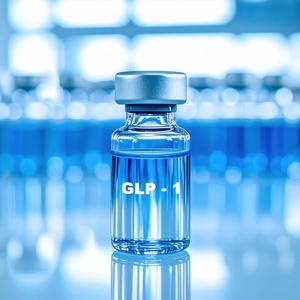Drager v. PLIVA USA, Inc.: Fourth Circuit Explicitly Rejects "Stop Selling" Attempt to Avoid Generic Preemption
The Fourth Circuit has recently weighed in on a generic drug maker’s duties in a post-Bartlett and PLIVA v. Mensing world. In Drager v. PLIVA USA, Inc., 2014 U.S. App. LEXIS 1696, 2014 WL 292700 (4th Cir. Jan. 28, 2014), plaintiff conceded that his failure to warn claims against the generic manufacturer of metoclopramide (generic for Reglan®) were preempted, but argued that other claims remained viable.
First, plaintiff alleged that his claims of “negligent testing, inspection, and post-market surveillance” escaped preemption. The Fourth Circuit found that any duties to test, inspect, or conduct post-market surveillance were only actionable to the extent that there was an eventual sale to the consumer. To the extent that state law might impose a duty to avoid the negligent marketing and sale of a product,
[I]t is clear that a generic drug manufacturer whose product is unreasonably dangerous as sold could not satisfy that duty without changing its warnings, changing its formulation, exiting the market [the “stop selling” theory], or accepting tort liability.
Drager, 2014 U.S. App. LEXIS 1696 at *12.
The Drager court noted that the U.S. Supreme Court has rejected the “change warnings” argument (PLIVA v. Mensing)and the “change formulation” argument (Bartlett). This leaves either “stop selling” or accept liability. The Fourth Circuit found that the negligence claims were preempted by the FDCA, because there was no possible way for PLIVA to comply with state and federal law and continue to sell its product.
The Fourth Circuit rejected the strict liability claim for the same reasons. PLIVA was authorized to market metoclopramide with the labeling and formulation approved by the FDA, and was not permitted to change the labeling or the formulation. This leaves only “stop selling” as an option to avoid the imposition of strict liability. The Fourth Circuit expressly held that “the stop selling rationale is an impermissible means of avoiding preemption under Bartlett.” Drager, 2014 U.S. App. LEXIS 1696 at *14.
Regardless of whether a risk-utility or consumer-expectations approach to liability is used, if the drug is FDA-approved but “unreasonably unsafe,” there is no change that the generic manufacturer can take under FDA regulations to comply with state law, and the manufacturer “cannot be required to stop selling its product.” Id. at *15. The court rejected plaintiff’s breach of express warranty, misrepresentation, and fraudulent concealment claims for the same reason – if the manufacturer’s only option to avoid liability is to leave the market, the claim is preempted. Id.
Drager is a well-reasoned opinion on preemption issues. The opinion also presents a clearly-articulated analysis of the implications of plaintiffs’ claims against generic manufacturers, correctly noting that the essence of these claims is that the manufacturer should exit the market, an argument that the court emphatically rejected.
related services

Weight Loss Wonders, Legal Woes: The Price of GLP-1 Popularity ...

AI-Enabled Medical Devices Here To Stay? ...
About Drug / Device Law Blog
Baker Sterchi's Drug / Device Law Blog examines topics and legal developments of interest to the drug and device industry. Learn more about the editors, Paul Penticuff and Megan Sterchi Lammert, and our Drug and Device practice.
Subscribe via email
Subscribe to rss feeds
RSS FeedsABOUT baker sterchi blogs
Baker Sterchi Cowden & Rice LLC (Baker Sterchi) publishes this website as a service to our clients, colleagues and others, for informational purposes only. These materials are not intended to create an attorney-client relationship, and are not a substitute for sound legal advice. You should not base any action or lack of action on any information included in our website, without first seeking appropriate legal or other professional advice. If you contact us through our website or via email, no attorney-client relationship is created, and no confidential information should be transmitted. Communication with Baker Sterchi by e-mail or other transmissions over the Internet may not be secure, and you should not send confidential electronic messages that are not adequately encrypted.
The hiring of an attorney is an important decision, which should not be based solely on information appearing on our website. To the extent our website has provided links to other Internet resources, those links are not under our control, and we are not responsible for their content. We do our best to provide you current, accurate information; however, we cannot guarantee that this information is the most current, correct or complete. In addition, you should not take this information as a promise or indication of future results.
Disclaimer
The Drug / Device Law Blog is made available by Baker Sterchi Cowden & Rice LLC for educational purposes only as well as to give you general information and a general understanding of the law, not to provide specific legal advice. Your use of this blog site alone creates no attorney client relationship between you and the firm.
Confidential information
Do not include confidential information in comments or other feedback or messages related to the Drug / Device Law Blog, as these are neither confidential nor secure methods of communicating with attorneys. The Drug / Device Law Blog should not be used as a substitute for competent legal advice from a licensed professional attorney in your state.














